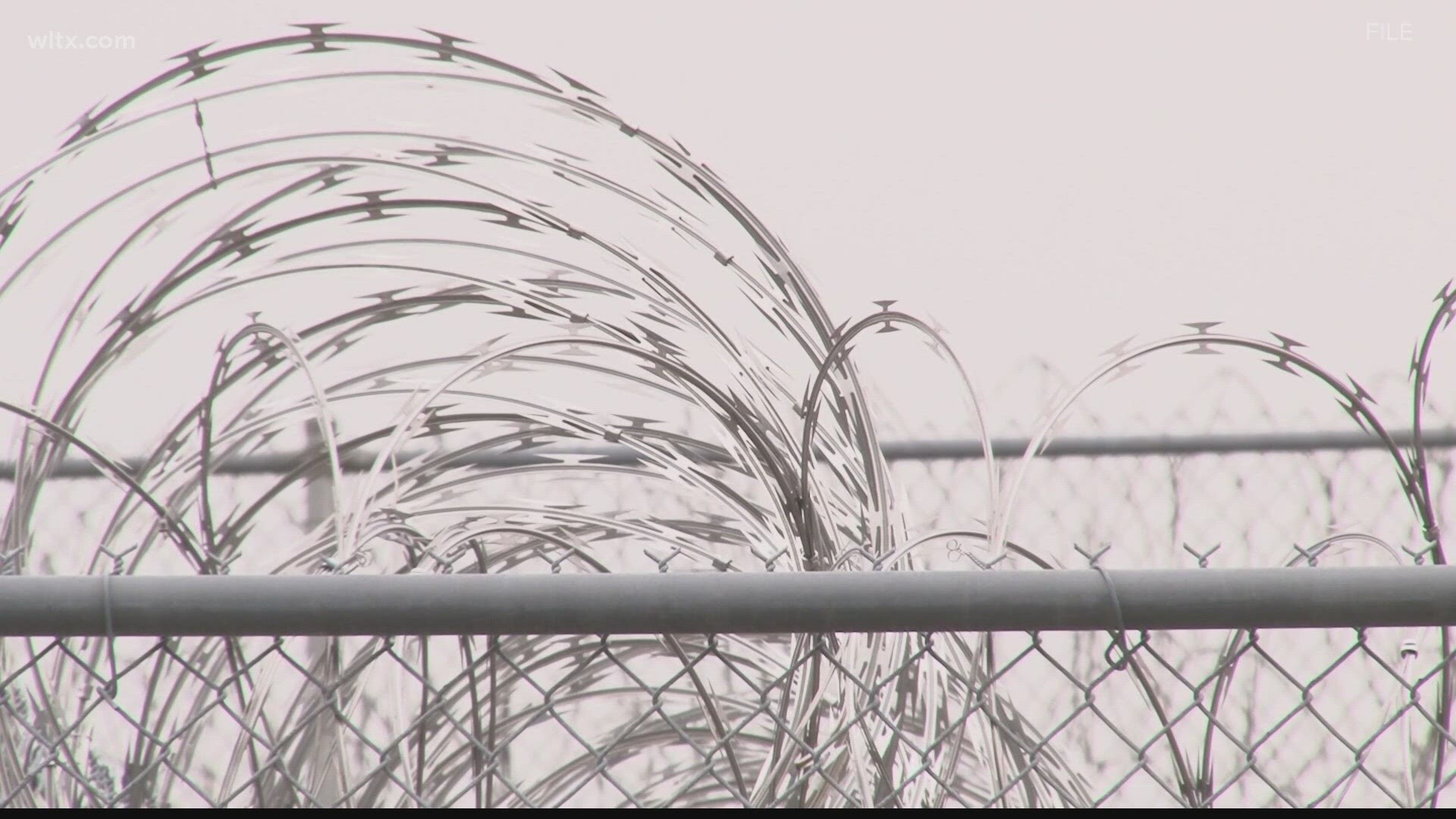RICHLAND COUNTY, S.C. — A series of stabbings, a federal investigation by the Department of Justice, and most recently this weekend's riot has the Richland County jail on many people’s minds. Alvin S. Glenn Detention Center is run by Richland County.
In some counties in the Palmetto State, this is typical. Other jails in South Carolina are run by the local sheriff’s office.
"I always say that the jail is Cinderella in the criminal justice system," Jasper County Detention Center Director Arthur Benjamin said. "My passion is detention correction. So, the jail is … when you’re able to build relationships and work in collaboration, that means a lot. Because everybody used to think of the jail as, 'Oh, they’re nothing,' but we’re professionals. We’re educated. We run this facility, and it's not easy. Everyone can’t do this. It's a passion you have to have the run this."
Benjamin has spent his career working in detention centers, starting in New York and working his way to South Carolina. Now, he manages the 108-bed facility.
"Running a great jail is…it takes a lot. You’ve got to have people that have the same passion and also training. Training is a must," Benjamin says.
Benjamin’s jail is run by Jasper County. Out of the 46 counties here in South Carolina, 12 are run by counties, 32 by sheriff’s offices and two are regional jointly run, according to the South Carolina Association of Counties.
"There's a state statute that says that the jail is run by the sheriff. Now that is, over time evolved into different processes because it actually also gives a process to devolve that authority back to the county," South Carolina Sheriff's Association Executive Director Jarrod Bruder details. "And so right now the sheriffs are running about 75% for the detention centers across the state."
Bruder says there are benefits to having the sheriff’s office run a local jail — like having quick access to inmates for investigation — but, "ultimately it comes down to that county deciding who they trust to run it and where they want to invest their resources," Bruder said.
As far as hiring statistics, Alvin S. Glenn Detention Center's jail director says there are currently 121 officers overseeing 971 detainees as of earlier this month. To be fully staffed, the jail says it would need about 250 officers.
"It comes down to the resources. A lot of times recruiting people to come work in the jail, that's not a sexy job. That's not something that everybody just rushes out of, you know, high school or college and wanting to go to that. And so it comes down to what you're able to pay and unfortunately, that's not like I said a job that most taxpayers are gonna want to go back and pay that high dollar price tag for the best jailers in the world. And so ultimately, that's what drives a lot of our recruiting is the ability to pay the benefits we're able to offer," Bruder said. "I can't tell you that there's absolutely one right decision to do it — sheriff or not — but I think counties kind of have to evaluate that themselves and make the right decision based on their personnel and their resources that they have."
It's a decision that Maj. Robert Dennis with Newberry County Sheriff’s Office says factored into Newberry’s decision to switch the jail, which he says typically operates with just under 100 detainees, from the county’s control to the sheriff’s office. Dennis says his office has worked to oversee the facility since the early 2000s.
"Probably in the early 2000, the sheriff's office, the sheriff was tasked with the jail. You know, nothing really changes other than who oversees and what does what. You know, the biggest thing that you have to think about is no matter who is overseeing it, you still have to go through the county for funding," Dennis explains. "So no matter whose running the detention center, is how much are you willing to put into the pot that's going to attract and keep the employees to manage an effective as well as an appropriate detention center so that everyone in it feels safe, you know, from the employees to the inmates or detainees."
In addition to securing funding, Dennis and Benjamin both tell News 19 that they’re seeing an increase in mental health issues among detainees in recent years. They both say that having mental health treatment and resources for detainees is crucial for successfully managing their jails.
When it comes to Richland County Sheriff’s Department taking over the jail, Sheriff Leon Lott said in a previous statement, “At this time it would not be feasible in light of the current investigations and efforts by the county to address the problems. The Richland County Sheriff’s Department is not unique in that I am not the only sheriff who does not have control of the county detention center.”

